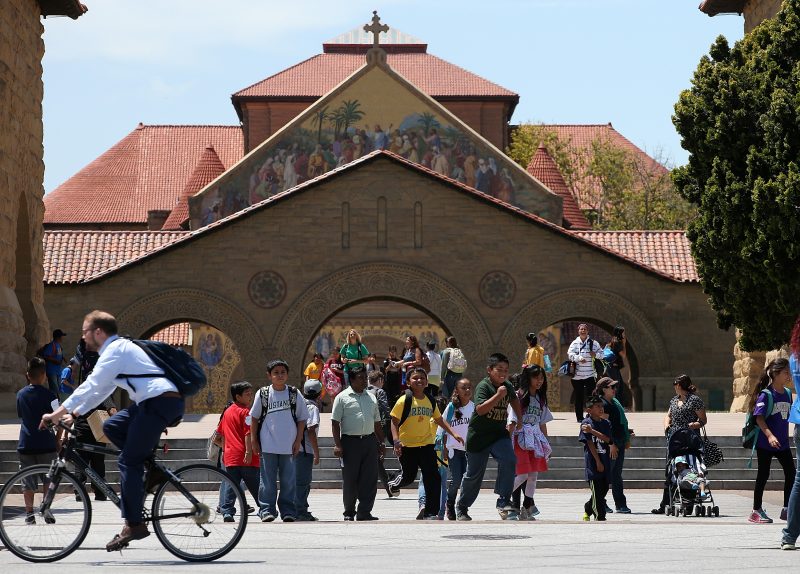US defends welcome to students as China warns of risk
US universities such as Stanford are popular with Chinese students, who contributed $14 billion to the US economy in 2017 (JUSTIN SULLIVAN)
Washington (AFP) – The United States said Monday it was committed to welcoming Chinese nationals for “legitimate” studies but acknowledged increased visa scrutiny after Beijing warned its students of risks.
Amid an escalating trade war between the world’s two largest economies, China’s education ministry pointed to an uptick in visa denials and delays. It told students applying to US universities to brace themselves and “strengthen risk assessment.”
A decrease in Chinese students could be costly to the United States. China is by far the biggest source of international students on US campuses, with 360,000 attending last year. Many pay costly full tuition.
The State Department said it had increased scrutiny after identifying a rising number of cases in which foreign intelligence co-opts students during their time in the United States.
“At the same time, we’re committed to providing the highest quality service to legitimate travelers — who constitute the overwhelming majority of our visa applicants — so they can receive swift, thorough and clear decisions regarding their visa applications,” a State Department spokeswoman said.
“We welcome Chinese students and scholars to the United States to conduct legitimate academic activities,” she said, saying that most applicants receive full five-year visas.
Xu Yongji, deputy head of a department overlooking foreign academic exchanges at China’s education ministry, said that visa denials have “damaged the dignity” of Chinese students and cast a “cold spell” over research collaborations and academic exchanges.
From January to March, more than 1,350 Chinese students had applied for US student visas but 182 were “unable to make the trip as planned” due to visa issues, accounting for 13.5 percent of all applicants, Xu told state broadcaster CCTV.
Citing data from the China Scholarship Council, Xu said this was a marked increase from just over three percent of applicants who experienced visa issues in 2018.
China’s foreign ministry spokesman Geng Shuang said the US had been setting “unnecessary obstacles” to people-to-people exchanges between the two countries.
– Major economic impact –
Chinese students contributed $14 billion to the US economy in 2017, according to a trade group.
India is the second largest source of students but the gap is significant, with fewer than 200,000 Indians studying in the United States.
US complaints about technology and intellectual property theft by China have been a major bone of contention in the trade war between the two countries.
FBI director Christopher Wray said in April that Beijing had used Chinese graduate students and researchers, among others, in its economic espionage efforts in the United States.
“China has pioneered a societal approach to stealing innovation in any way it can from a wide array of businesses, universities and organisations,” Wray said.
“They’re doing it through Chinese intelligence services, through state-owned enterprises, through ostensibly private companies, through graduate students and researchers, through a variety of actors all working on behalf of China.”
Last month, Republicans in the US Congress introduced legislation aimed at barring Chinese military scientists from obtaining visas to study or work in the United States.
Disclaimer: Validity of the above story is for 7 Days from original date of publishing. Source: AFP.


